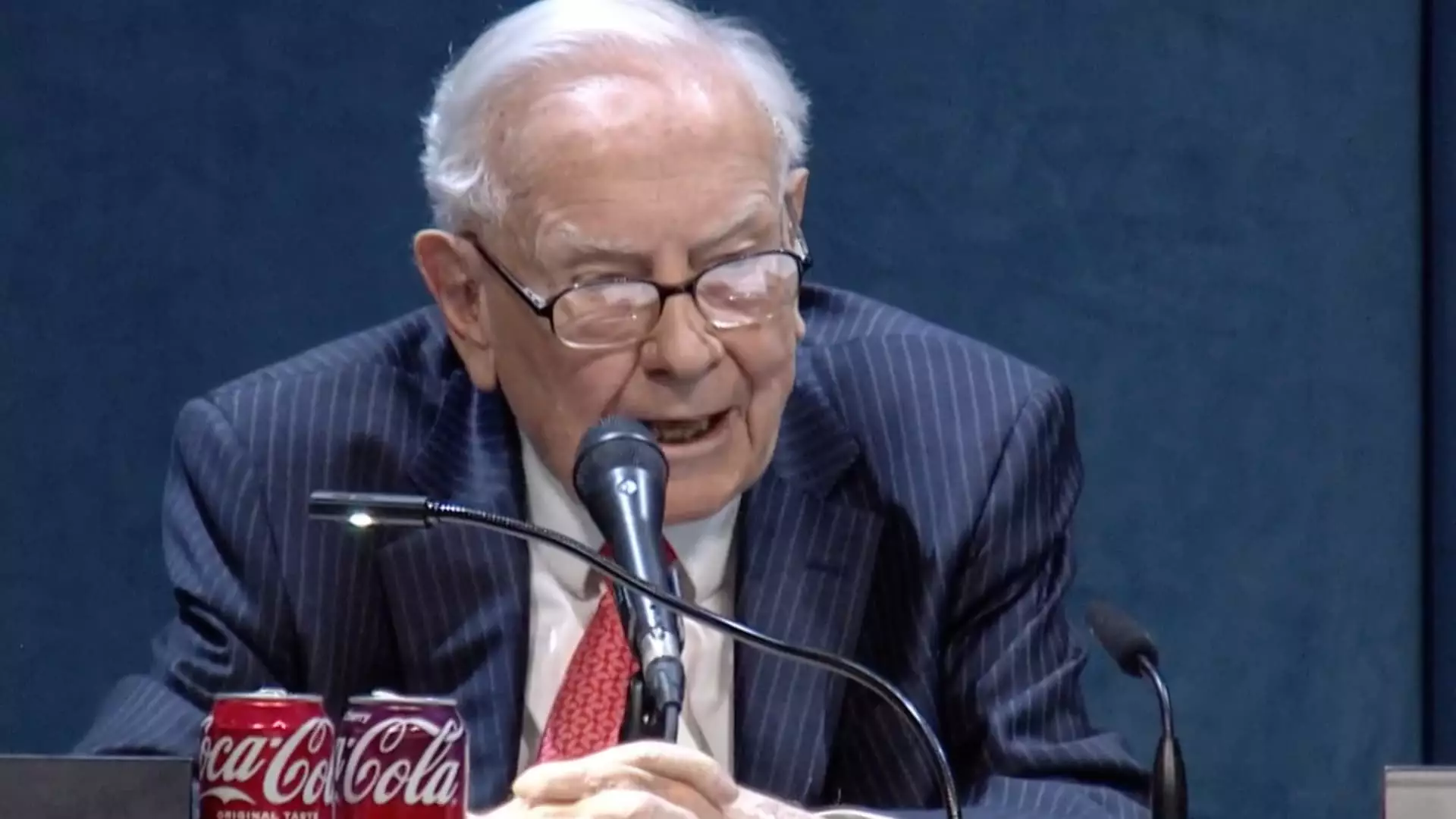In a world increasingly driven by globalization, Warren Buffett’s recent critique of protectionist trade policies strikes a necessary chord. During Berkshire Hathaway’s shareholder meeting, the sage of Omaha delivered an unfiltered condemnation of punitive tariffs, implicitly warning against the dire economic implications of isolationism. His assertion that “trade should not be a weapon” resonates deeply with those who recognize that the health of the global economy directly impacts America’s prosperity. Viewing trade as a hostile encounter not only stunts economic growth but creates a false narrative where isolation is seen as a virtue rather than a liability.
Buffett’s clarity in addressing the fallout from aggressive trade actions underscores an unspoken but fundamental truth: when the global community thrives, so does America. By framing international trade as a potential “act of war,” Buffett calls attention to the increasing bellicosity of language toward trade relations—a tactic that could dangerously alienate allies and resolve conflicts through negotiation. Instead of harnessing the benefits that come with interdependence, America risks forfeiting its advantage in a complex, integrated world economy.
Embracing Common Ground in a Divided Landscape
The paradox lies in the U.S.’s admiration for its economic might juxtaposed with the reality of “seven and a half billion people that don’t like you very well.” Buffett’s use of stark figures shines a spotlight on the geopolitical fragility caused by unilateral moves in trade policy. The aggressive 145% tariffs on Chinese imports, resulting in retaliatory levies, serve as a reminder that economic hostilities can escalate beyond mere numbers and trade imbalances; they can lead to a disruption of established relationships and create barriers that isolate the American consumer.
Moreover, Buffett’s assertion that “we should be looking to trade with the rest of the world” reveals a vision for future American prosperity based on collaboration, not confrontation. The cross-pollination of ideas, resources, and markets can invigorate innovation and technological advances that keep the U.S. competitive. The allure of nationalism in trade policy may tantalize some, but history suggests that it leads to deleterious outcomes far removed from the intended goal.
The Advisory Influence of a Business Titan
At 94, Buffett represents a living archive of economic wisdom. As titleholders await his guidance on navigating the choppy waters of the current macro environment, his caution against protectionism serves as both a warning and an opportunity. After Berkshire Hathaway announced significant stock sell-offs, resulting in a record cash reserve, it’s clear that Buffett is not merely a passive observer; he’s adapting to unpredictable economic trends with strategic foresight.
Investors who heed his warnings gain valuable insights into the broader implications of trade wars on market volatility. As geopolitical tensions mount, companies are left grappling with uncertainty, evidenced by the recent contraction of the GDP for the first time since 2022. In this precarious environment, Buffett’s counsel could act as a beacon, aiding prudent investors in steering clear of the pitfalls of overextension within a treacherous market crafted by misaligned trading practices.
Navigating Future Trade Policies
The challenges posed by current trade sentiments illuminate an alarming trend that could hinder America’s economic ascendance. The notion that trade is a zero-sum game, where win-lose scenarios prevail, requires re-examination in light of a more interconnected and cooperative global environment. As Buffett suggests, prosperity is not a finite resource; rather, it is something that can be cultivated and shared.
In the shadows of past economic success, the risk of repeating mistakes is high. Viewing tariffs as a mere bargaining chip in political negotiations undermines decades of diplomatic relations built on mutual benefits. If America is to maintain its leading role in the global market, it must choose collaboration over conflict, engagement over separation. The future hinges on recognizing that the very solutions sought to address trade imbalances might exist not in calling for walls but rather in the commitment to building bridges through expanded trade policies rooted in mutual respect and understanding.
Buffett’s insights encapsulate a broader narrative that can reshape the discourse around trade in America. As the “Oracle of Omaha” articulates a vision for economic stability, the question remains: will policymakers have the foresight to heed his warnings or continue to gamble with futures in a world that increasingly favors diplomacy over hostility? The stakes couldn’t be higher.

